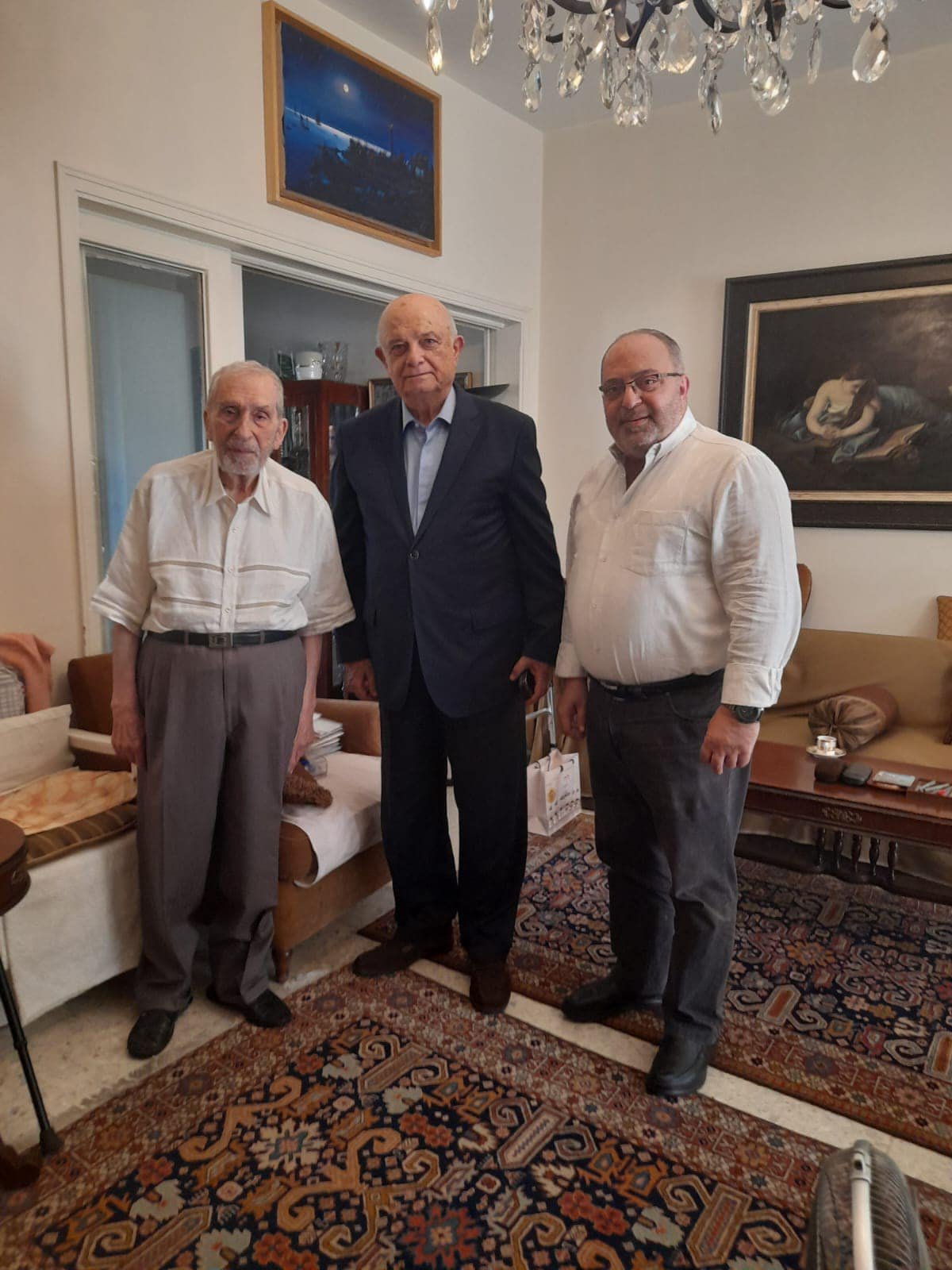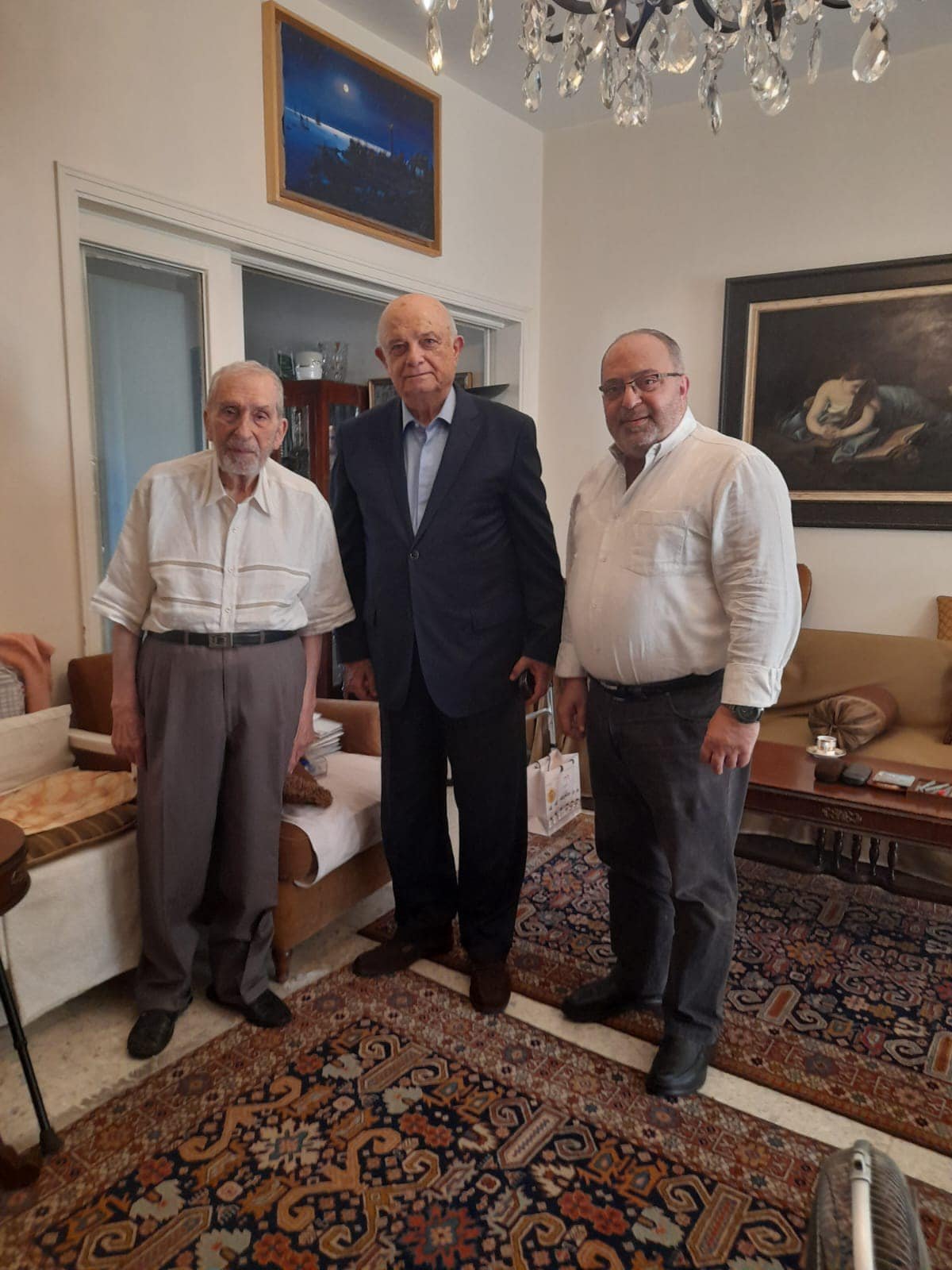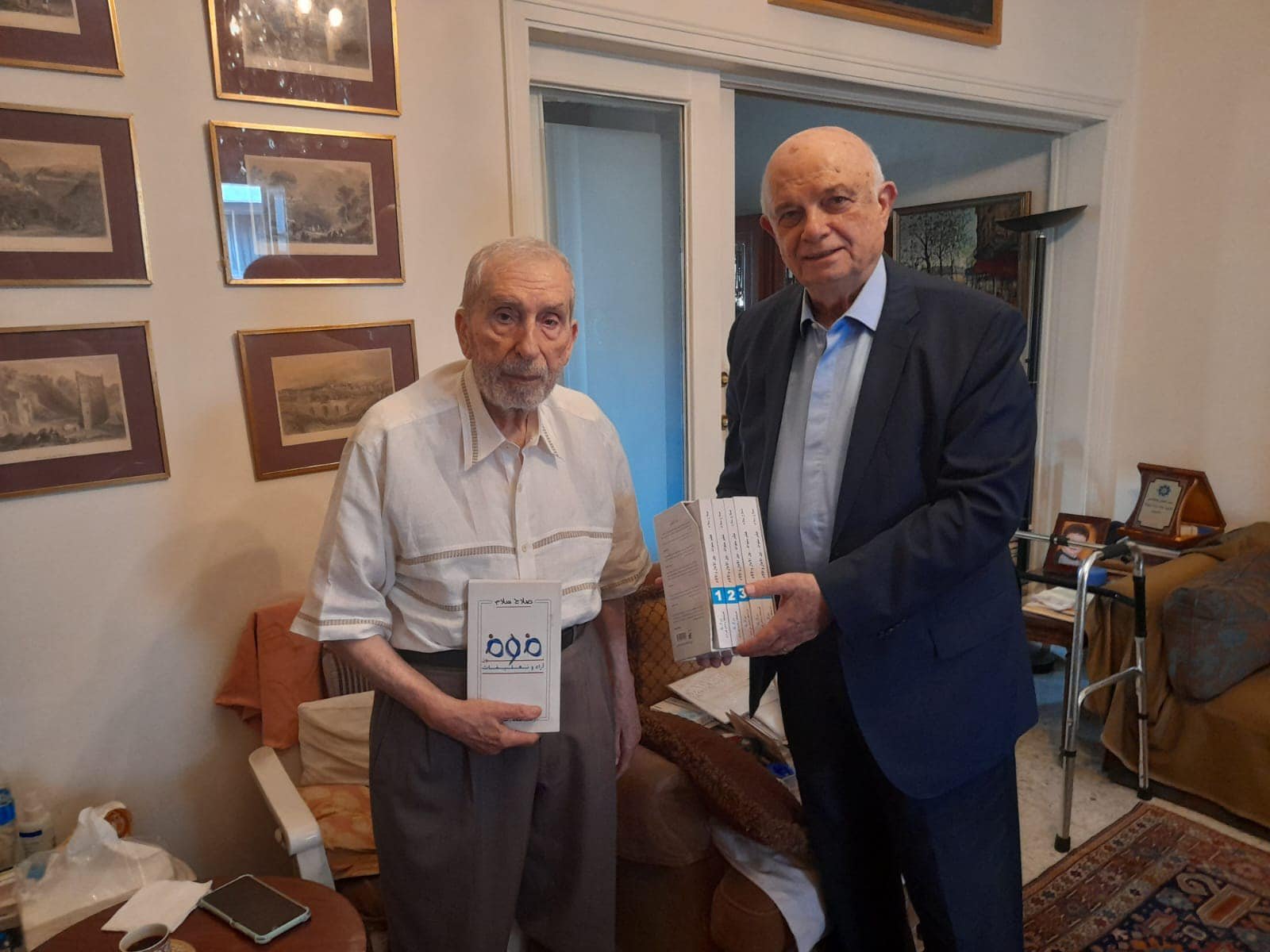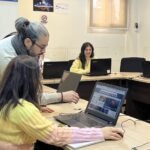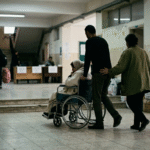Ziad Dandan, head of the administrative body of the “Beirut Heritage” Association, wrote: I was happy to be the third of three in the niche of thought and word, with a visit to our distinguished professor Abdel Latif Fakhoury, the historian of Beirut and the editor of manuscripts of travelers, writers, poets, consuls, and ambassadors who passed through Beirut, and those who lived in it, wrote about it, and sang of its beauty. And its magic, and the archives of its Sharia and civil courts, and the writer of its social history for its people and its people in their homes and travels and in their joys and sorrows. A visit that Mr. Salah Salam, editor-in-chief of Al-Liwaa newspaper, the district of Beirut and the flag of its written media, pulsing with the pulse of its street and the rhythm of the life of its people, wished to undertake, in a nation where each of its components has taken its own platform, while only “Al-Liwaa” remains a platform for us, and most of us do not care about it or care. His concerns, as well as the concerns of the entire country and its disintegrating institutions. A visit that was arranged in the context of a conversation with Mr. Salam about the “Beirut Heritage” Association, congratulating me on my election as head of its administrative body for a term that will last for three years, during which I hope to accomplish with my male and female colleagues what befits the heritage of a city whose first mention dates back four thousand years and more.. This was the focus of the talk of Professors Al-Fakhouri and Salam… and an intervention from time to time to add to the activities we intend to carry out in service of the association’s mission and the reason for its existence, which is preserving heritage and reviving what has disappeared from it in the memory of the youth of the future, so that they can learn about the history of their families and ancestors. Professor Salah Salam presented to the historian, Professor Abdul Latif Fakhoury, a collection of the brigade’s editorials that he wrote in a decade between two thousand and two thousand and ten (2000 – 2010), chronicling an important era of events that passed through Lebanon, the region, and the world and left their effects, and we live with their consequences to this day. I wish the visit was long, for you are between thought and pen, between knowledge and a free opinion that is not devoid of wisdom, vision and insight, so you can drink from each of them what you wish to drink, and sharpen your resolve with moral and practical support to work towards realizing the best and most complete, to raise the banner of Beirut with its authenticity and antiquity, the lady of the cities of Lebanon, The lady of the capitals of countries, and the icon of love and beauty in every time and place.
